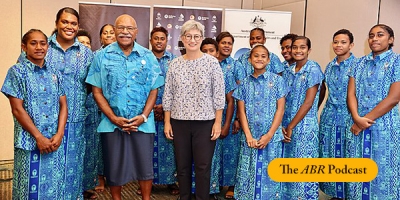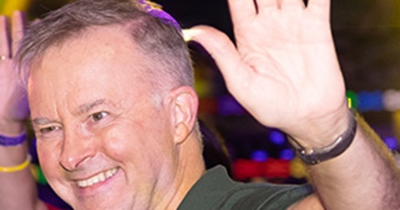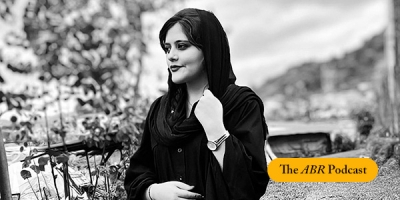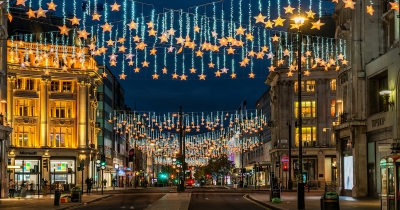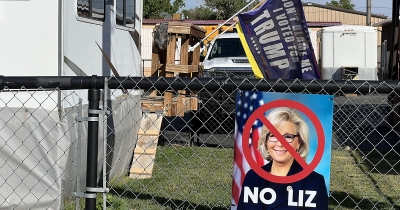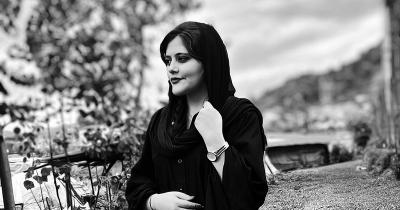Commentary
Back in the early 1980s, when I was working in Canberra as a public servant in an open-plan office, I obtained a doctor’s certificate declaring that I was allergic to cigarette smoke. I wasn’t – not at least in any strict medical sense. I was merely a healthy non-smoker who found being enveloped in clouds of second-hand cigarette smoke distressing and unpleasant.
... (read more)Nearly fifty years ago, when President Lyndon Johnson decided to begin scaling down Washington’s disastrous war in Vietnam, the Australian Minister for the Air, Peter Howson, confided to his diary that ‘to my mind it’s the first step of the Americans moving out of Southeast Asia and … within a few years, there’ll be no white faces on the Asian mainland’.
... (read more)In this week’s ABR podcast, James Curran considers the response of Asia-Pacific nations to the government’s decision to retain AUKUS, the major foreign affairs initiative of the Morrison government. In seeking to shape this response, Foreign Minister Penny Wong’s message is necessarily complex, argues Curran.
... (read more)The judges for this prestigious award are Bernard Smith, Mary Lord, Graham Rowlands and Rick Hosking. Some proven stayers, good mud gallopers, smart on top of the ground, they are judges amply qualified to assess a varied field.
We offer a form guide provided by well-known Sydney racing identity, Don Scott.
... (read more)Policy announcements are a peculiar kind of theatre, and Labor’s launch of its new five-year arts plan, Revive, was a strong example of the genre. It was held at Melbourne’s iconic Espy in St Kilda, a venue where arts audiences were treated to words of encouragement from Minister Tony Burke on his speaking tour to spruik the submissions process in 2022, and where ‘DJ Albo’ once entertained a modest crowd.
... (read more)What has spurred thousands of ordinary women in Iran and throughout the world to take to the streets under the slogan ‘Woman, Life, Freedom’? How unprecedented is this recent uprising in the history of Iran’s women’s movement? In this week’s ABR podcast, author-journalist Zoe Holman discusses the distinctive features of this protest and argues that its primary drivers are members of Iran’s Generation Z, who are educated, fearless, and angry.
... (read more)After its recent political and financial traumas, your correspondent arrived in London expecting to find a sombre, subdued city. Far from it. The Christmas lights were blazing in the West End, and on the weekends it was almost impossible to move while battling the hordes. But it was noticeable that few people were actually carrying shopping bags, and though the stores were crammed, the actual lines at the counters were remarkably short. The high-end restaurants were packed with pre-Christmas parties; after all, in London the rich you will always have with you. It may be my imagination, but the gaiety seemed slightly hysterical, as though this were a version of the duchess of Richmond’s ball – a last frolic before the onslaught.
... (read more)The United States is entering an important phase. By this time next year, with most presidential candidates declared, we will know whether the republic is post-Trump and returning to ‘normalcy’ or approaching peak-Trump and moving toward some sort of civil discord. I predict the former. The midterm elections in November 2022 revealed a nation grasping for the centre. The extremes of left and right did poorly. I expect this trend to continue through November 2024. So, for centrists, some New Year reasons to be cheerful.
... (read more)With protests by members of the Iranian diaspora burgeoning across Europe and the rest of the world, I attend a demonstration in central Athens. A group assembles in front of the Greek Parliament, with two banners outstretched. The first reads ‘Woman, Life, Freedom’, the second, ‘the Iranian people no longer want the Islamic Republic’. The mise en scène seems to capture the genealogy of a movement that began with the death of a twenty-two-year-old Kurdish woman, Jina (or Mahsa) Amini, on 16 September in Tehran following her arrest by the notorious morality police, and has since grown into what has been deemed the biggest domestic threat yet to the existence of the Islamic regime.
... (read more)When I began work on A Maker of Books, I had no idea that Alec Bolton had succeeded ‘Peter Pica’ (the publisher and bookseller Andrew Fabinyi) as a pseudonymous critic of Australian book design and production for Australian Book Review. He called himself ‘Martin Em’. I had set out to explore in detail Alec’s achievement as a letterpress printer of distinction at his private Brindabella Press, and also his long career in Australian publishing, but this was an unexpected discovery. The clue was a letter from Alec to John McLaren, the then editor of ABR, which I found in a completely unrelated file in the Alec Bolton papers at the National Library of Australia. When I looked at Martin Em’s ‘BookShapes’ columns, published between 1978 and 1982, Alec’s distinctive voice was quite apparent.
... (read more)

